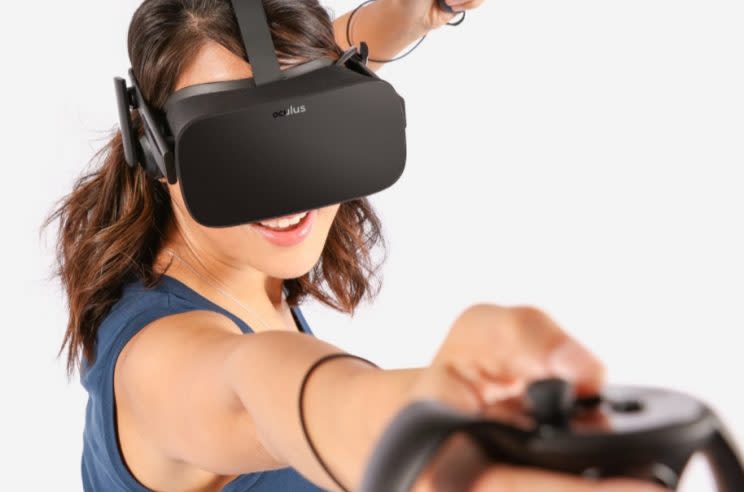Facebook exec: VR could be the 'world's most powerful social platform'
Facebook (FB) is making virtual reality more social. And to do that the tech giant is releasing a beta version of its new Facebook Spaces virtual reality app for the Oculus Rift and Oculus Touch Tuesday.
The idea behind Facebook Spaces is to make VR feel less like a solo experience, and more like you’re spending time with your friends and family in a virtual world.
“VR has the promise to be the most powerful social platform,” Facebook’s head of social VR, Rachel Rubin Franklin, told the audience at Facebook’s F8 conference in San Jose, California.
Spaces is the same platform that CEO Mark Zuckerberg debuted at Facebook F8 2016. In his demo, the CEO showed how he could do things like share videos and play live games with two other users in VR.
Spaces users will begin their experience by creating an animated avatar that moves its mouth along with your speech via a microphone. In other words, it’ll look like your avatar is actually speaking your words. Using the Oculus Touch controls, you can draw an astronaut helmet and place it on top of another user’s head.
Facebook says you’ll be able to design your avatar using your own photos and then customize it with different color hair, eyes, glasses and more.

“It’s most important that you feel comfortable with your avatar. And that’s a very individual feeling … This is the easiest it’s ever been to bring the real you into VR,” Franklin explained.
You’ll also be able to pull in photos and videos from Facebook and show them off in Spaces in real time. So if you see a ridiculous video online, you can add it into your VR room and show it to your friends live.
Spaces will also let you add a boombox to your room and begin streaming music via your own saved playlist.
Facebook’s Spaces promises to help make virtual reality more approachable for people turned off by the feeling of isolation associated with most mainstream VR games.
There’s just one problem: There still aren’t many people using VR headsets. Sure Samsung’s Gear VR is popular, but hardcore systems like the Oculus Rift haven’t reached critical mass among consumers.
If Spaces is going to take off and become a kind of VR version of “Second Life,” Facebook will have to figure out a way to get Oculus headsets into more homes.
More from Dan:
Samsung Galaxy S8 review: So impressive people will forget about the Note7
I drove the electric Chevy Bolt all weekend and only freaked out once
Windows 10 Creators Update: Microsoft’s best just got better
Email Daniel at [email protected]; follow him on Twitter at @DanielHowley.
